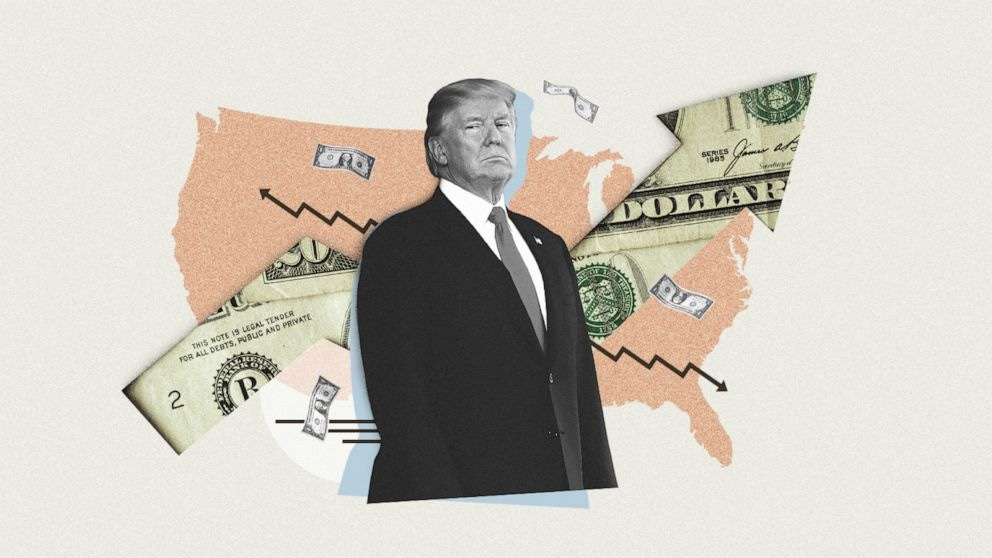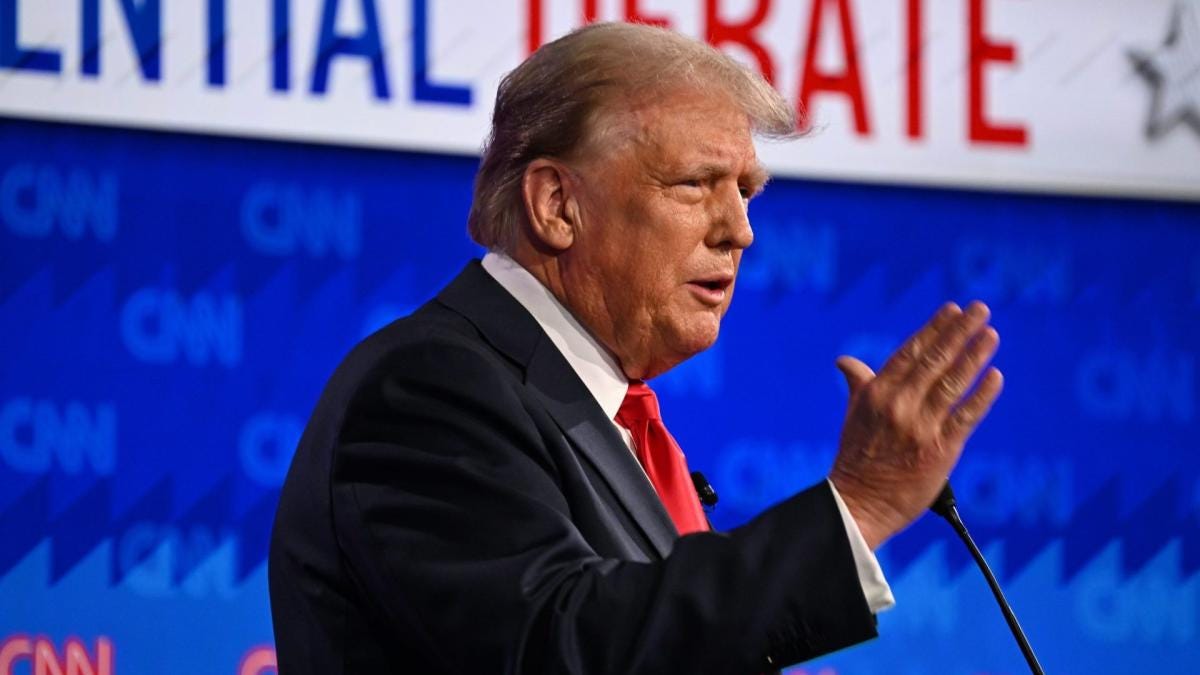How Will the Election Results Affect Small Businesses?
The government will be controlled by a single party. This will likely make it a bit easier to determine what changes are coming down the pike.
The results are in: Donald Trump is going back to the White House, while the Republicans will hold the House and flip the Senate. That means all three branches of government will be held by one party. Now that we know what the makeup of Washington, D.C. will be next year, what does this mean for small businesses?
There were a variety of promises made and proposals created by the Trump campaign in the months preceding the election. Today, I want to walk through the ones that may have relevance to us as small business owners. Keep in mind: this is not a political article. In discussing these topics, I’m not concerned with the political implications, nor am I sharing with you any of my own opinions about their merit.1 Rather, I only want to examine what may be lying ahead for all of us as we head into the holiday season and the 2025 calendar year.
Tariffs
Throughout the campaign, Trump promised to impose tariffs on a variety of imports. As the campaign progressed closer to election day, he continued to add zeros to some of those numbers, but I’m willing to assume those latter comments were just the whims of a politician at a rally – most politicians say things they don’t mean in these scenarios.
But Trump has consistently proposed a tariff on all imports of between 10 and 20%, as well as a higher tariff (as high as 60%) on goods made in China. In a prior article I wrote before the election, which I urge you to peruse, I explained how tariffs affect pricing, but here it is in short: tariffs increase prices. The importer pays the tariff, and generally passes that cost along to consumers. Pantheon Macroeconomics says that a 10% tariff would increase overall inflation by an additional 0.8 percentage points. Therefore, a 20% tariff (and a 60% on Chinese goods) would likely increase inflation by nearly two percentage points. On top of the typical annual inflation, these tariffs would likely cause total inflation to rise back into the four- or five-percentage range, harming consumers and stifling demand.
The National Retail Federation also reports that these proposed tariffs would cause U.S. shoppers to lose $78 billion in annual spending power, since importers will almost always pass along those tariff costs to the consumer. So, while tariffs could potentially, in the long run, cause some production to return to the U.S. (though most economists believe that number is quite small), it would, in the short term, harm small businesses by raising the price of products while also reducing consumer demand for those same products. Even if you do not directly import any products, more than likely the raw material for products you sell are also subject to these tariffs – so your costs may still increase, even if you believe you’re immune from it.
Note that tariffs can be adjusted unilaterally by the executive branch – it does not require an Act of Congress. Therefore, these tariffs can be imposed at any time, with little to no warning. This is one of those scenarios where what a president says out loud matters, because the president can act on a tariff impulse at any moment. This is why now is a good time to start developing a plan of action if tariffs are implemented, rather than waiting until they are.
Tax Law
Regardless of who won the election, we were going to reach a cliff by the end of 2025. The Tax Cuts and Jobs Act of 2017 has multiple parts that are set to expire at the end of the coming year. A number of parts need to be renewed in some form, including: the SALT cap (for state and local taxes); the 20% qualified business deduction for pass-through income; business expense deductions (for research, interest, and certain capital investments); the highest marginal tax rate for individuals; and the estate tax exemption.
Trump has pledged to renew most of these permanently as part of new tax legislation. He has also endorsed removing (or greatly raising) the SALT cap to allow those in high-tax states to receive a larger federal tax break. He has promised to lower the corporate tax rate further to 15%, as well as enacting a law exempting tips and overtime pay from federal tax.
Whether you agree with the proposals or not, almost all of these pledges would end up saving small businesses and their owners a great deal of money. However, there’s a caveat here. Unlike tariffs, tax law must be enacted through Congress.2 And while Republicans have control of both chambers of Congress, most bills cannot pass the Senate without 60 votes. The only reason the TCJA passed seven years ago was because the Senate has a loophole that allows a bill to pass with a simple majority if it meets certain requirements. One of those requirements, essentially, is that it cannot create an expected budget deficit after nine years. This is why most parts of the original law expire in 2025 – it allowed the law to pass in the first place.
This time around, it is still unlikely that the Republicans will be able to permanently enact everything they want, unless both Republicans and Democrats decide to sit down and compromise.3 More than likely, we will see another temporary tax bill that will again kick the can down the road to 2033. In the meantime, however, most small business owners will see their tax bill decrease.
Consumer Rights
A lesser-known pledge made by Trump in the last few months was a plan to cap credit card companies’ annual percentage rates (APR) at 10%. This would certainly benefit cardholders, as it will make it a bit easier to pay down their card balances over time, rather than be buried under a mountain of interest. That sounds great for the general public – but that’s not what we’re concerned with here.
I’m going to drop some knowledge on you: financial institutions make a lot of money. They don’t make that money by rolling over and accepting a decrease in their annual revenue. If they are forced to take less revenue from delinquent consumers, they will find a way to make up those costs elsewhere. They could shift revenue elsewhere by adding an extra few basis points to a mortgage rate, or increasing their banking fees. But the easiest way for them to do this is to simply jack up the merchant processing fees that small businesses pay to swipe a customer’s credit card. These processing fees are blind to the vast majority of the country. Anything that slides under the radar is just fine by them. But in the end, it will be small businesses that will pay the price. Be prepared for this possibility as you examine the underlying costs of doing business.
Immigration
I feel like I’m walking over hot coals just saying “immigration” in a business setting. But stick with me here. Remember, we’re not talking about politics; we’re talking about the potential effect on our businesses.
Trump has made a plethora of pledges relating to immigration. Let’s ignore what actually happens with the border itself and instead focus on the loudest part of his plan, where the U.S. deports upwards of one million undocumented immigrants per year. Let’s also ignore the logistical impossibility of doing that for the purpose of this article and assume it was doable.
Imagine these deportees as simple economic units and it’s pretty obvious what will happen. If you remove one million people each year from the U.S. population, you are removing both one million consumers’ worth of buying power and one million workers from the labor force.
When you remove demand (on the consumer side), businesses will sell fewer goods. The American Enterprise Institute, a conservative-leaning economic firm, estimates that Trump’s immigration policy would cause GDP growth to be 0.5 points lower than it would otherwise be. In a country of our size, that accounts for about $130 billion and would represent a 25% drop in the expected GDP growth for 2025.
When you remove supply (on the labor side), the cost for that good (in this case, workers) increases. This means it will be more expensive to hire and retain workers – if you can find them in the first place (since there will now be a shortage of workers).
Again, I’m not diving into the radioactive political rhetoric surrounding immigration.4 But economically, Trump’s immigration plans would be quite harmful to the economy. It would leave us with fewer people to consume goods and services, while also making it harder and more expensive to find the workers we need to operate our businesses.
Supreme Court Makeup
With the Senate and the White House inhabited by Republicans starting in January, it is very likely that we will see the retirement of two Supreme Court justices before the 2026 midterm elections. Samuel Alito and Clarence Thomas are both in their mid-70s and would likely want to see their seats filled with young Conservatives while Trump is in office. Based on the track record from his first term, Trump would likely replace them with justices further focused on deregulation and sending certain rights back to the states. While businesses love deregulation, I want to specifically focus on the states’ rights aspect.
Most of the momentous rulings from the right-leaning court over the last few years allowed states to make their own decisions of what rights they offer to their citizens (rather than allowing the federal government to do so). What this means to you as a business owner is that you need to become much more acutely aware of the laws your state has recently passed and is considering passing in the coming years. These laws will affect your employees, your customers, and most of the people you do business with. While this isn’t a definite positive or negative, it is crucial to understand that the state you reside in will continue to play a much bigger role than the federal government at large. Even if you personally agree with a law that your state is passing, if it restricts the rights of a subset of your staff, there is a good chance you may not only have a disgruntled employee, but they may even leave to find shelter in a different state, leaving you with a position that is impossible to fill (see “immigration” above).
At the end of the day, most of these proposals and pledges will turn out to be empty, as most campaign promises are. But when it comes to politics and policy, I always follow a simple rule: follow what’s happening in the news, because by the time a new policy is enacted, it’s usually too late for you to reposition yourself. Just remember not to get caught up in the emotional spiral that is American politics. We have businesses to run.
For my political opinions, you’ll have to talk to the pillow that receives my muffled screams any time I’m frustrated with either party, which is generally daily.
Fun fact, tax bills are required by the Constitution to originate in the House of Representatives, because it is the chamber of Congress closest to the people. And I’m sure Senators and Congressmen don’t talk at all.
LOL
For the love of God, please do not email me your feelings on undocumented immigrants.



